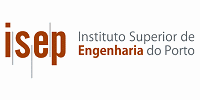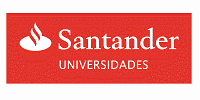Essentials of Learner-Centered Teaching
(Fundamentos de Ensino Centrado no Aluno - Workshop em INGLÊS)
Descrição da Formação
Esta ação de formação introduz os fundamentos do Ensino Centrado no Aluno [1], [2], [3]. Começa com uma abordagem aos estilos de aprendizagem, introduzindo depois estratégias provadas para ensinar mais eficazmente e para abarcar uma maior variedade de estilos de aprendizagem. As estratégias centradas na aprendizagem, apresentadas nesta ação, incluem aprendizagem ativa, aprendizagem cooperativa, e metodologias de ensino indutivas. Embora seja fornecido material de enquadramento sobre investigação pedagógica, a ação focará principalmente a integração destas estratégias na planificação de cursos/aulas e a sua utilização em sala de aula.
(Mais informação na versão em inglês)
Objetivos da formação
No final desta ação de formação, os participantes deverão ser capazes de:
- Identificar os diferentes estilos de aprendizagem dos alunos
- Delinear atividades curriculares endereçando diferentes estilos de aprendizagem
- Introduzir nas suas aulas uma variedade de estratégias de aprendizagem ativa
- Utilizar em experiências em contexto laboratorial real, remoto, e simulado, num processo de descoberta direcionada.
Público Alvo
Esta ação é direcionada para docentes do ensino superior. Aluno(a)s de pós-graduação com alguma experiência de ensino são também encorajado(a)s a participar.
Formador (biografia em inglês):
 Dr. Stephanie Farrell is an Associate Professor of Chemical Engineering at Rowan University (USA). She obtained her PhD in Chemical Engineering from New Jersey Institute of Technology in 1996. Prior to joining the faculty at Rowan in 1998, she was an Assistant Professor of Chemical Engineering and Adjunct Professor of Biomedical Engineering at Louisiana Tech University until 1998. As a pioneer of inductive teaching methodology in engineering courses, she has made significant contributions toward project-based learning and novel laboratory experiences to engage students in the scientific discovery process. Dr. Farrell has been recognized nationally and internationally for significant contributions to engineering education through her work in experiential learning and faculty development. In 2012 she was awarded Honoris Causa in Engineering Education from the Internationale Gesellschaft für Inginieurpädagogik. She has been honored by the American Society of Engineering Education (ASEE) with several teaching awards such as the 2004 National Outstanding Teaching Medal and the 2005 Quinn Award for experiential learning. With over a decade of experience in leading workshops domestically and internationally, she has conducted workshops on a variety of topics including effective teaching, inductive teaching methods, and the use of experiments and demonstrations to enhance learning. Dr. Farrell is the Vice President Member Affairs for ASEE, and she serves on the Executive Committee of the International Federation of Engineering Education Societies (IFEES).
Dr. Stephanie Farrell is an Associate Professor of Chemical Engineering at Rowan University (USA). She obtained her PhD in Chemical Engineering from New Jersey Institute of Technology in 1996. Prior to joining the faculty at Rowan in 1998, she was an Assistant Professor of Chemical Engineering and Adjunct Professor of Biomedical Engineering at Louisiana Tech University until 1998. As a pioneer of inductive teaching methodology in engineering courses, she has made significant contributions toward project-based learning and novel laboratory experiences to engage students in the scientific discovery process. Dr. Farrell has been recognized nationally and internationally for significant contributions to engineering education through her work in experiential learning and faculty development. In 2012 she was awarded Honoris Causa in Engineering Education from the Internationale Gesellschaft für Inginieurpädagogik. She has been honored by the American Society of Engineering Education (ASEE) with several teaching awards such as the 2004 National Outstanding Teaching Medal and the 2005 Quinn Award for experiential learning. With over a decade of experience in leading workshops domestically and internationally, she has conducted workshops on a variety of topics including effective teaching, inductive teaching methods, and the use of experiments and demonstrations to enhance learning. Dr. Farrell is the Vice President Member Affairs for ASEE, and she serves on the Executive Committee of the International Federation of Engineering Education Societies (IFEES).
[1] R. Hake, 1998, Interactive-engagement versus traditional methods: A six-thousand-student survey of mechanics test data for introductory physics courses, Am. J. Phys. 66: 64-74
[2] M. Prince, "Does Active Learning Work? A Review of the Research." J. Engr. Ed., 93(3), 223-231 (2004).
[3] Smith, K.A., S.D. Sheppard, D.W. Johnson, and R.T. Johnson, “Pedagogies of Engagement: Classroom-Based Practices,” J. Eng. Ed., 94(1), 87 (2005).



